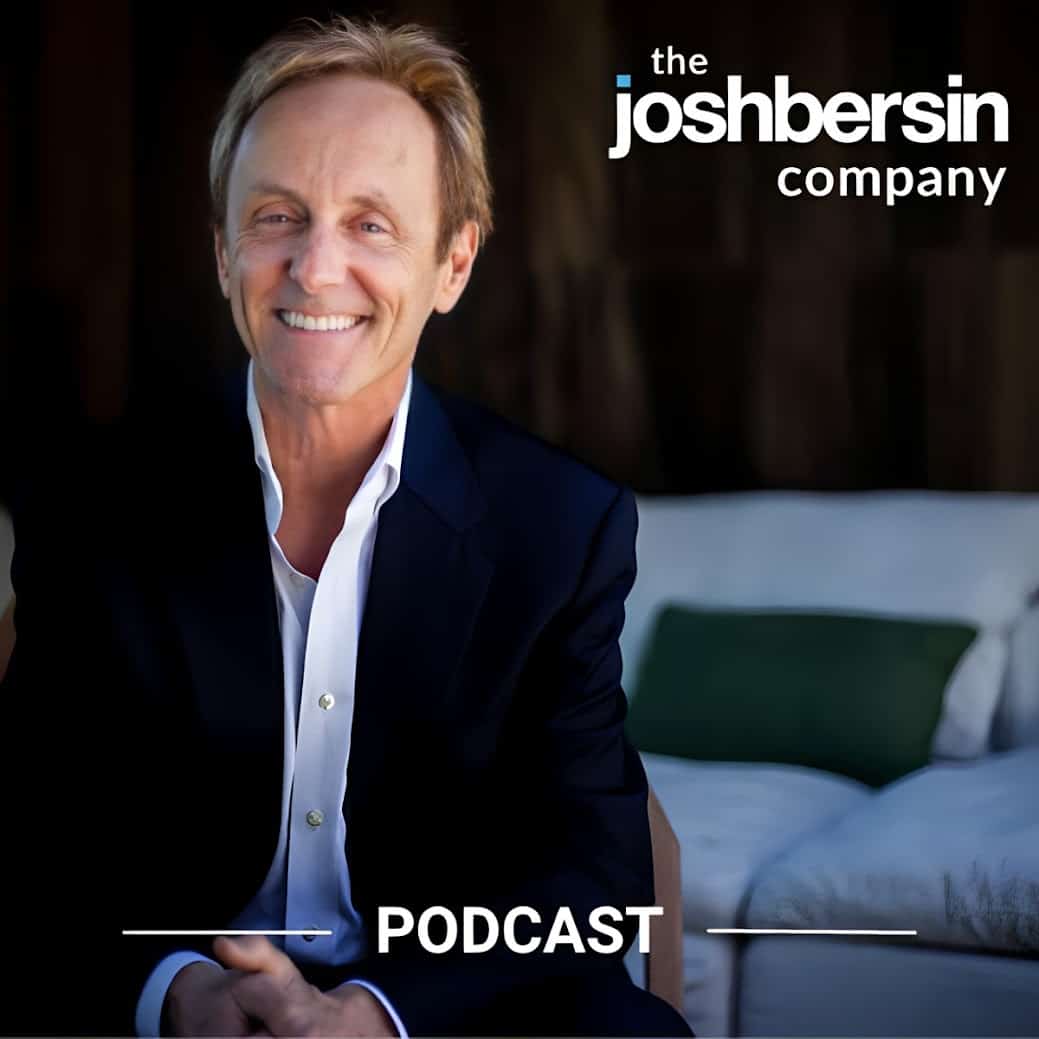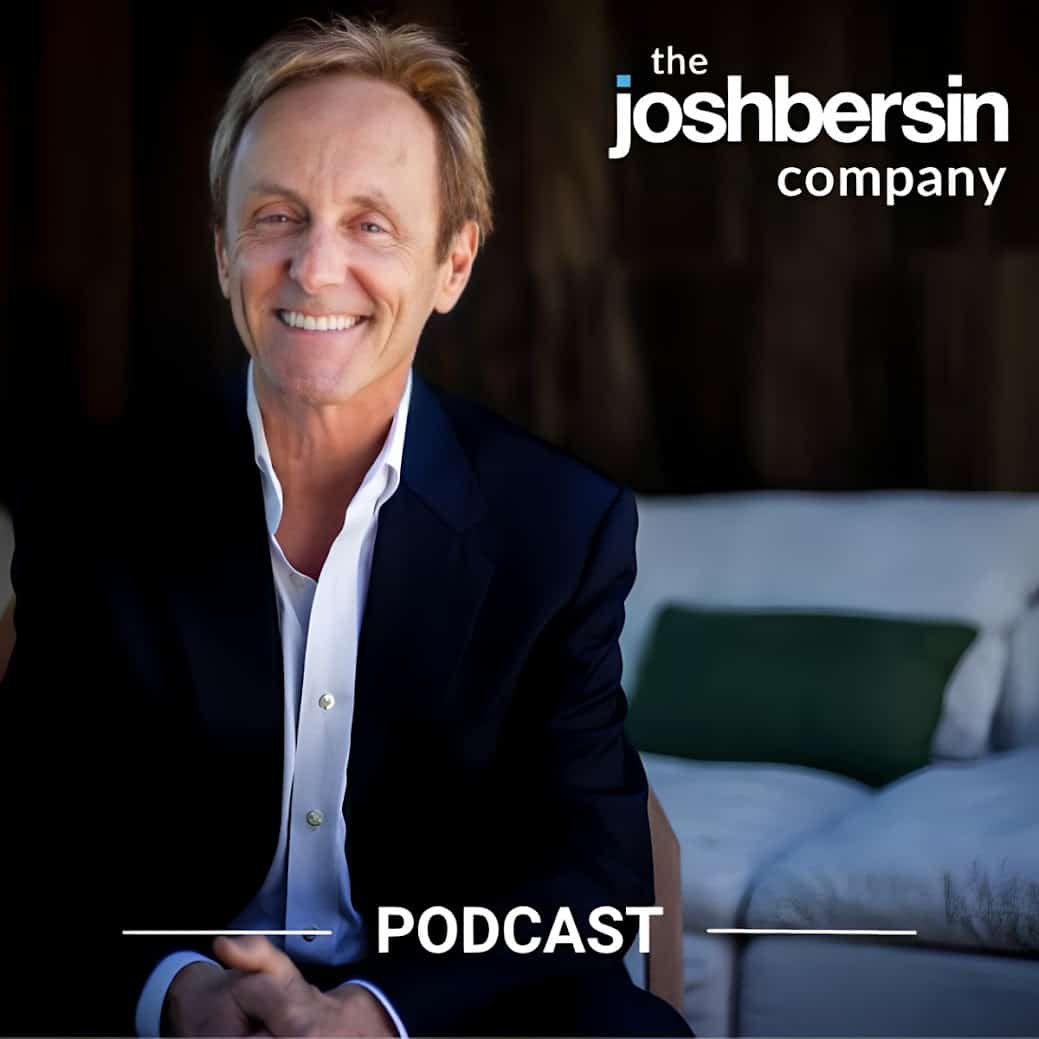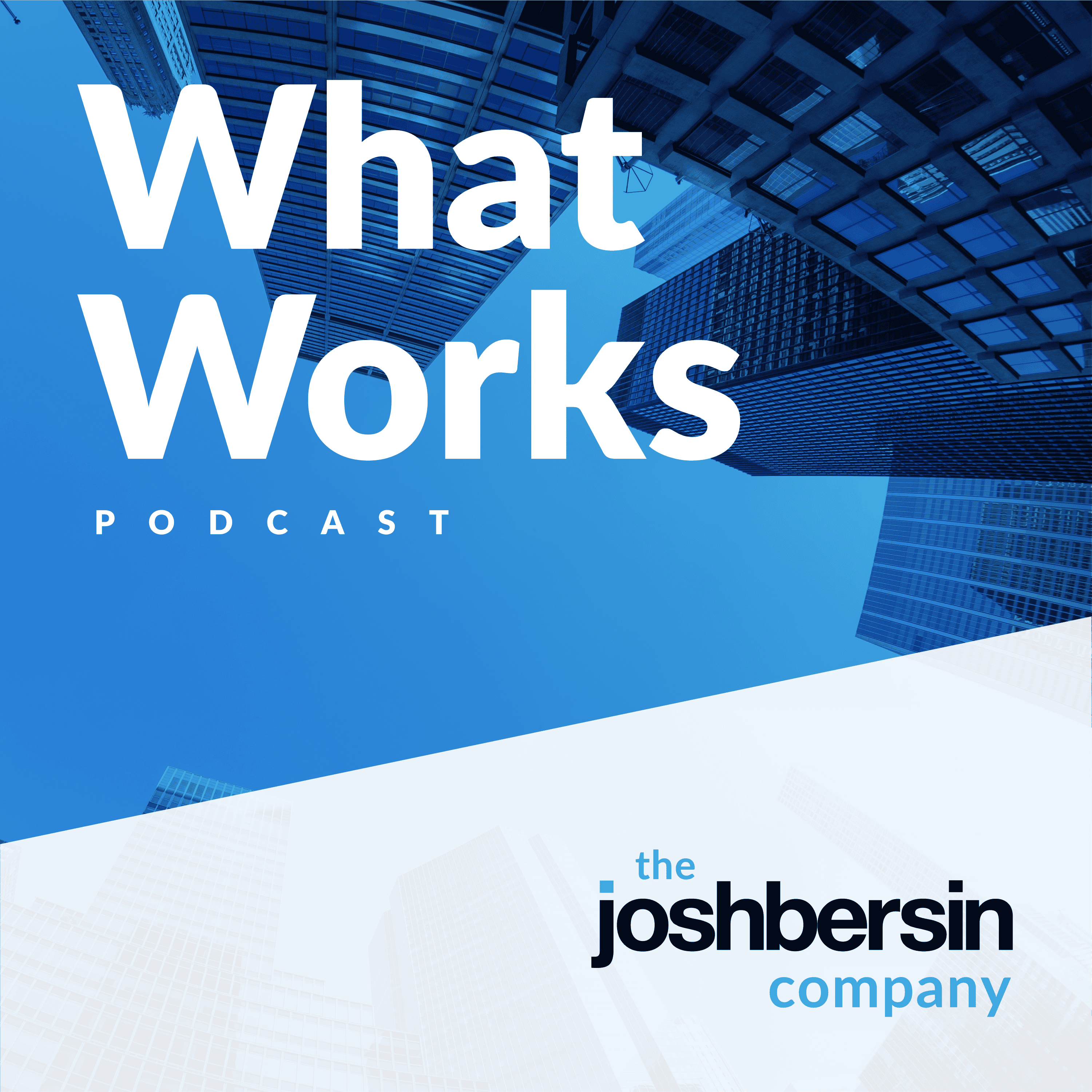Episode Transcript
[00:00:11] Good morning, everyone. Today I want to give you my comments on the latest New York Times article. So human resources is making you miserable. It's a very commonly written article about why we hate hrtaine and the frustrations of dealing with HR people. But the interesting thing about this one is it's also taking the perspective that HR people themselves believe that it's an exasperating ordeal, quote unquote, and that people hate us.
[00:00:42] So let me give you my thoughts on all this. First of all, it is true that for those of us that have entered this profession, we have chosen to insert ourselves into very difficult situations. All people, issues and decisions are complex, and everybody in business thinks they know the right answer. Who to hire, who to lay off, how much to pay people, what to do about a harassment problem, what to do about a performance problem, how to evaluate performance, how to train somebody, how to onboard somebody, etcetera. We all have opinions about this.
[00:01:20] So HR professionals who try to take a scientific and professional approach and always have great ideas and learn a lot are always facing skeptical leaders and managers and employees who say, I don't think that's the way we should do this.
[00:01:39] I mean, that doesn't happen in it. That doesn't happen in sales. It might happen in marketing. I mean, it's one of the areas of business where it's really easy to question the HR person. And one of the other reasons that that questioning happens is that the HR person is oftentimes implementing a decision that was made by another person, a senior leader perhaps, that may not have been that aware of the social and cultural issues they're addressing. So because you're kind of caught in the middle, you're like an ombudsman between the employees or the workforce and perhaps the job candidates and, you know, managers and leaders who may or may not totally understand what's going on. And that is why the job is so fascinating and so interesting and so difficult. And I completely respect the opinions of the people in this article that I understand that it's hard.
[00:02:40] Which leads me to number two. You know, I spend a lot of time with HR professionals. Most of you know that. A lot of you have met me, and this has become my career for almost 30 years. These are really smart, hardworking, well intentioned people who have chosen to spend their time trying to make their companies, their organizations, and their employees lives better.
[00:03:06] They sort of sign up for this. And what they do is they rise to the challenge. So, you know, the people that were whining and complaining in the article and I won't mention any names, you know, are really just expressing their frustrations. In reality, I think 90% to 95% of the people in NHR are very inspired by this work because the upside is so fantastically high. And today, as we run into labor shortages and skills shortages and transformations and design changes and AI and productivity issues, these jobs are even more fascinating than ever. And they're not HR jobs, they're business jobs. You know, the old days of HR not having a seat at the table or you sitting at the corner are over. There isn't a business issue in any company that isn't related to people. Every single one. We don't have the right people in the right role, we don't have the right managers, we don't have the right skills, et cetera. We're losing people or we're hiring the wrong people, whatever it may be. So this is a noble, to me, very high value profession that has crawled out of administration and compliance years ago. And so, you know, we as HR professionals have to raise our heads up and just deal with the frustrations. The third, you know, big topic that comes up in all of these articles, and there have been many of them over the years, and I think has to do with some of the comments that are in the New York Times comments section. By the way, there's about 600 or so comments, and most of the comments are actually supporting the thesis that the HR function is not doing a very good job or there's not very good people in it, or it's representing the company and not the employees and so forth, is that this is a profession that is oftentimes not treated as a profession. Now, one of the comments I just read was about companies taking underperformers in other roles and swapping them into hrtaine. I actually think this is a problem. I don't believe you would take an underperforming salesperson and give them a job as a senior financial analyst. I don't think you'd give them a job as a senior IT administrator or a cybersecurity specialist, but you would rotate them into HR, which is just absurd.
[00:05:35] We have to, as HR people and as business people, we have to respect the fact that this is a profession. And there are a lot of technical data related historical research, centric skills, capabilities, models, architectures, strategies, psychological models that are proven to be part of this profession. And if you just drop yourself into HR from, you know, another domain and don't understand this, you're going to sort of disrespect the profession. Now, you know, I've done research on this for a long time, and we have 94 complex capabilities in our HR capability model. 94. I'm sure there are 94 capabilities in it and 94 capabilities in sales, but actually, I don't think so. I think HR is more complex than many of these other business domains because we have human psychology issues, we have issues of technology and business processes. We have issues of data and rewards and recognition, design, culture, innovation. I mean, these are complex topics that we're dealing with in HR, not just who filled out their I nine form. And do we have DEI targets or not? I mean, that's the, you know, kind of really low level stuff. So, you know, I think for those of us that are in the profession that feel beleaguered by the difficult situations we're in, let's just sort of pull ourselves up by our bootstraps and say, hey, where is this hard work? And sometimes people don't appreciate it. So let's show them what we do and take it seriously. And let's also tell our organizations to take our profession seriously. You know, not only do companies rotate non performers into HR, which is obviously a big mistake, but they don't invest enough in HR as a profession. I've spent the last six or seven years building a business around the professional development and support, through education and research of HR professionals themselves. And it's not uncommon at all for me to go to a company that has almost no budget whatsoever for the development of the HR people, but has thousands of dollars of budget per employee for salespeople or other leaders in the company. In fact, the research we're doing on Chros now, which just astounds me, shows that somewhere around 75% to 80% of Chros are hired from the outside because the CEO's and other business leaders do not trust the professional development of the HR people in their company. You know, do you do that for your sales executives, for your marketing executives? Of course, sometimes. But let's just respect the fact that this is a profession with all of the characteristics and skills and domain practices of any other profession, and not everybody can do it. Which leads me to sort of my fourth point, which is that everybody likes to second guess what HR people do. So if you're implementing the remote work policy or the family leave policy, or the DEI standards or standards of conduct, or a training program, that's a required certification or whatever it may be, you know, maybe in HR, maybe you're implementing it, maybe you didn't design it, maybe you did design it. The person on the other side of the table is probably saying to themselves, hmm, I could have done this myself. Why are they doing this? They're questioning you. And what we have to do to overcome that sense of insecurity or imposter syndrome, perhaps that HR people have is we have to be prepared. We have to explain why the company is doing what it's doing, why this process makes sense, and how it's going to help the company as well as the employee. You know, this constant issue that comes up, this happens during layoffs, too, a lot where employees believe that HR is not acting in their behalf and they're only acting on behalf of the company is really a very sort of naive perspective.
[00:10:03] What we actually have to do in HR is understand all the stakeholders. Of course, the CEO and the business leaders have directions and plans and financial needs.
[00:10:14] So do job candidates, so do stakeholders, board members, so do employees. And the HR professionals have to reflect all of those stakeholders and sometimes push back on decisions that business leaders may try to make with imperfect information. For example, if a CEO says, let's suppose you're the CEO of a semiconductor manufacturing company, and you say to HR, we're not going to pay that much for those roles.
[00:10:46] We have to go back to them and say, well, I'm sorry, then we're not going to get candidates because those roles are hard to find and we're either going to have to pay more or give these people better benefits or do other things to improve our likelihood of attracting those candidates. Ditto remote work. I mean, if there are CEO's left, and I'm sure there are, that refuse to understand the value of remote work, we as HR people have to go back to them and say, look, 60% to 70% of job candidates evaluate the flexibility of work as their number one criteria and make that case. And this comes down to really, we and those of you in the profession, acting with a sense of self confidence, having data and skills and examples and case studies at your fingertips, and thinking of yourself as a business person and leader yourself, you are a peer in many ways of the others. You are not their servant or their service delivery partner. In fact, one of the frustrating parts of HR is this idea of being a business partner. Well, I mean, would you call a salesperson a business partner? Would you call a marketing person a business partner? No, they're just a business person. And I think that's kind of where we are in our profession. I will, you know, kind of conclude my comments with, you know, a very positive thing here. And that is that in the years that I've done this, I can see massive progress and forward momentum in this profession. You know, I do tend to talk to larger companies and people a little bit more sophisticated in HR in general. But the labor market issues, remote work, hybrid work, the pandemic, well being, leadership gaps, skills, new skills needed in the organization. I think most CEO's and business leaders are very dependent on the success of HR in order to succeed and grow their companies. So we're no longer in a situation where we're begging people to pay attention to what we're saying. They are coming to us and asking us for solutions to problems. And if you look at all of our research on systemic HR and what it's about, it's about the HR profession and all of you in it, including me, serving as problem solvers, not service delivery servants in a sense. And that obviously hasn't permeated the entire profession yet. But it is happening. And you know, maybe that's another reason that this frustrating kind of feeling is out there. So, you know, as much as I tend to dislike reading articles like this, and they're very anecdotal, there's only maybe eight or ten people that were interviewed. I think it's a wake up call and some lessons that we can learn about the profession. I remain as excited about this as ever. My little survey on LinkedIn shows that 80% to 90% of the HR people out there are very inspired by their work and they're willing to put up with these issues. And it's not a job for the faint of heart. Let me just leave you with that. If you think it's going to be easy to go into HR and just be nice to people all day, that's not what it's like. You're making difficult decisions on behalf of multiple stakeholders and adding enormous amounts of value. And sometimes people will disagree with you and they won't necessarily be happy. But that's the way the job works. And if you do this with the best of intentions, and you take the interests of the shareholders, the leaders, the employees and the other stakeholders, you will have a magnificent career. And you know, the level of innovation and creativity and technology and new ideas in HR is just astounding. So my hats off to everybody in this profession. And if you feel anything like the people in these article, in this article, call me and I'll give you a big pep talk. Thanks a lot.


